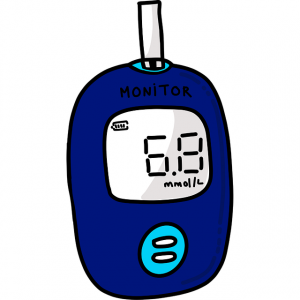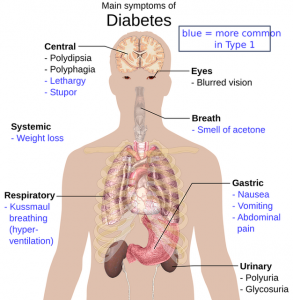Blood sugar levels. Insulin sensitivity. Risk of diabetes. What, if anything, is the likely effect of selenium supplementation on glycemic control?

Glycemic control is the maintenance of blood sugar levels within an acceptable range to prevent the adverse effects of low blood sugar and high blood sugar.
The best measure of glycemic control is the HbA1c test. This blood test HbA1C gauges the average glucose level in the blood over a period of approximately three months. It is considered a good predictor of diabetic complications.
Checking Blood Sugar
The US Center for Disease Control and Prevention suggests that logical times for testing blood sugar levels are as follows [CDC 2022]:
- When first awake and before eating or drinking anything
- Before a meal
- Two hours after a meal
- At bedtime
Target Blood Sugar Levels
The CDC suggests the following desirable blood sugar levels [CDC 2022]:

